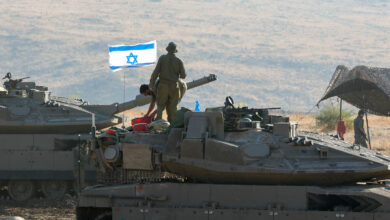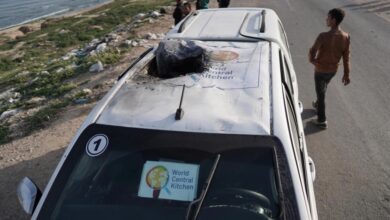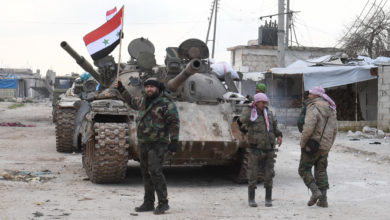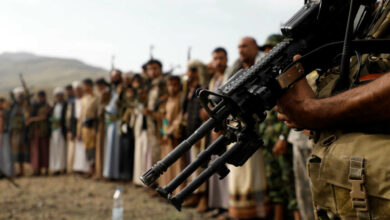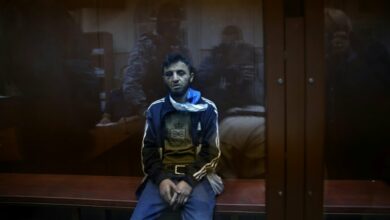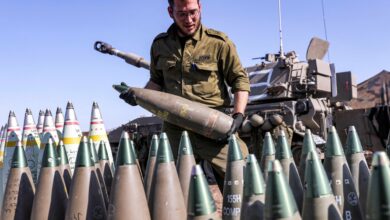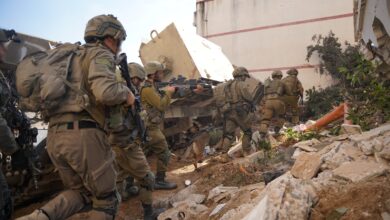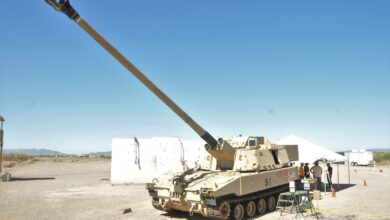
The momentum of Libya’s complex crisis is favoring more violence and destruction. Last week’s fighting around the Ras Lanuf and Al Sidra oil terminals – which damaged the oil tankers and reduced production by 60-70 percent – is only the beginning of the scrimmaging that will take place leading up to elections in December of this year. The June 14 military offensive affirms some unfortunate realities of the Libyan conflict: no actor is willing to cede ambitions to rule, even in the face of their obvious unfitness to do so, and the complete destruction of the country is increasingly accepted as a means to gain power in the ongoing conflict.
The assault was spearheaded by defected head of the Petroleum Facilities Guard Ibrahim Jadhran and a coalition of men, including a salafi-jihadist-leaning group called the Benghazi Defense Brigade.
The BDB and Jadhran are stark opponents of eastern leader General Khalifa Haftar, who has controlled the oil fields since he took them from Jadhran in September 2016. Haftar has maintained consistent oil production since he gained control of the oil fields, save for a few days in March 2017 when Jadran launched an attack and achieved brief control of the same two fields.
Last week’s clash was a repeat of Jadhran’s 2017 offensive: the BDB gained control of the fields on June 14 only for the LNA to reclaim them on June 22, likely with some back-and-forth of control in between.
Military strategy: missing
Many questions remain around the offensive this time around, including Jadhran’s true motivations as well as the source of support. His return to the headlines is symbolic of a thread in Libya’s conflict: the tendency for actors to launch offensives when they are on their back foot.
Jadhran is arguably the least popular and weakest he has ever been. After Haftar’s army took the oil fields in 2016, Jadhran left the scene in defeat. He reappeared in March 2017 only to suffer another loss. Since the last appearance in 2017, he has not obtained any significant support, supplies, or men; nonetheless, he attempted and failed once again to regain control of the oil fields for any significant period of time.
Haftar also launched his long anticipated offensive on the northeastern city of Derna at a time when he was weak rather than strong. His two-week visit to a French hospital ignited rumors of his ill health, including that he was comatose or dead. Haftar’s popularity was revealed to be not so robust when his sons were immediately threatened. Despite this clear setback, soon after he returned to Benghazi from Paris in late April, he began transforming the ongoing siege of the 100,000-person city into a full-on occupation – or, to use his word, a “liberation.”
Although the campaign was launched at a weak point, he will likely succeed in conquering all of Derna. A successful result on Haftar’s part does not prove a strength of his military but rather stems from the weakness of forces in Derna who have not had access to flour or medicine let alone to more weapons and ammunition to fend off his army since the siege that began in July 2017. Additionally, Haftar relies on air support from his foreign sponsors, Egypt and the United Arab Emirates, to conquer territory.
Elections to solve Libya’s haphazard conflict
The tendency to launch random offensives at counterproductive junctures gives the Libyan conflict a sense of haphazardness. Small actors overestimate their power and effectiveness to execute tactics to achieve their military ambitions. A continuation of this practice is dangerous but unfortunately increasingly likely as small but destructive actors, of which there are many, are desperate to make any sort of gain on the ground leading up to the elections.
The announcement of elections came from the May 29 summit when Libya’s rival governments met in Paris and agreed to a constitutional basis in September and national elections on December 10. May’s summit is the second time in the last 12 months French President Emmanuel Macron has pulled autocratic eastern leader Haftar into the international spotlight, naturally giving him legitimacy.
France is the leading Western country seeking a political solution in Libya. However, France’s support is hollow: while propping up spoilers like Haftar who block political efforts of political reconciliation, Macron is unwilling to supply any military support to protect against devastating attacks affecting Libya’s critical oil infrastructure, such last week’s assault that France knew about three weeks before. In other words, France is impatient for a solution but refuses to do more than reserve a meeting room in Paris and invite the press.
Tripoli: a ticking time bomb
Power grabs will become increasingly frequent as the elections approach, especially in the militia-dominated capital of Tripoli.
Tripoli’s security apparatus is a network of armed groups that operate, paradoxically, as both a police force as well as criminal networks that profit from the illicit economy. The unique dynamic is a result of the decision soon after 2011 to put all revolutionaries on the government’s payroll. Additionally, the U.N.-backed government in Tripoli does not have a security force; rather, it relies on the loyalty of militias to secure the building and operate safely, therefore leaving them unrivaled in the city.
Four main groups have entrenched their power by controlling key locations and wielding guns on every block. However, the system is not sustainable. Any trigger – such as an assassination or an unclaimed attack – has the potential to pull the rug from underneath the evolving chain of command and shifting loyalties. A big enough provocation could turn the occasional clashes into larger, bloodier battles. Such a provocation is likely because the opponents of the main militias continue to have a presence in the city and nearby. Worst of all, no actor rules out the complete destruction of the city for the sake of controlling it.
Despite the harsh reality on the ground, the international community is still pushing for elections. There is an pragmatic argument for elections, including that the population could be drawn from a state of apathy to which they have retreated in the chaotic situation. The security situation needs to be addressed simultaneously with achieving political harmony at the top; achieving only one will not be an accomplishment and instead will perpetuate Libya’s conflict.
Erin A. Neale is a research assistant at the Atlantic Council’s Rafik Hariri Center for the Middle East where she focuses on North Africa. Follow her on Twitter: @erinaneale.
All views and opinions expressed in this article are those of the author, and do not necessarily reflect the opinions or positions of The Defense Post.
The Defense Post aims to publish a wide range of high-quality opinion and analysis from a diverse array of people – do you want to send us yours? Click here to submit an Op-Ed.

